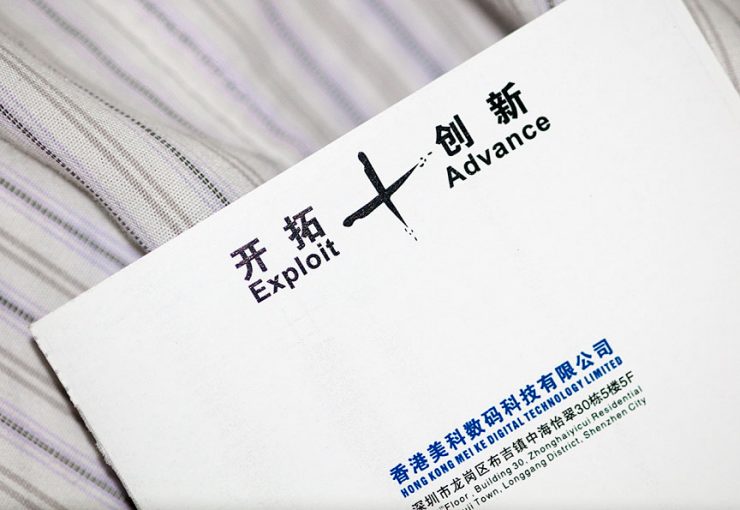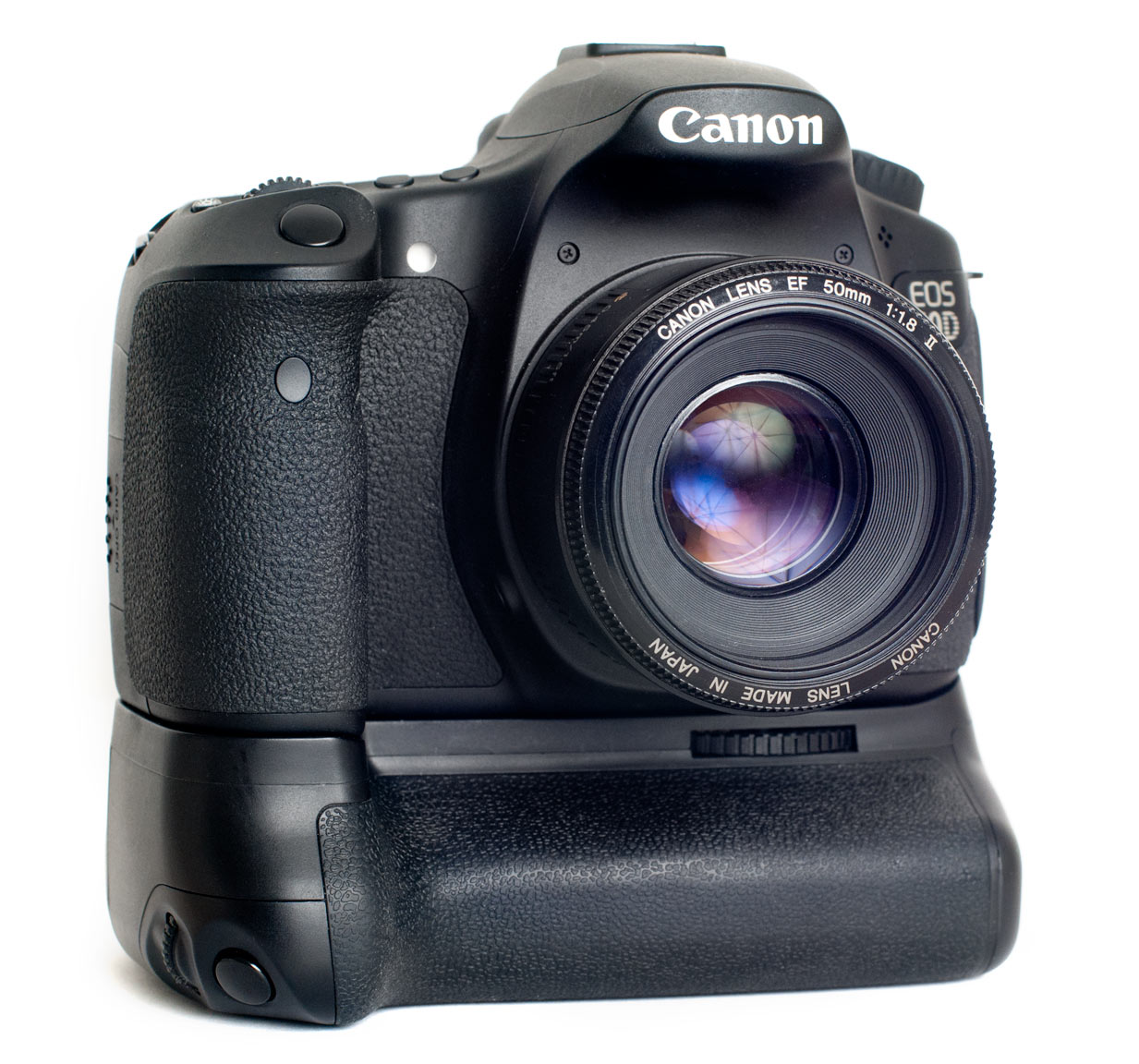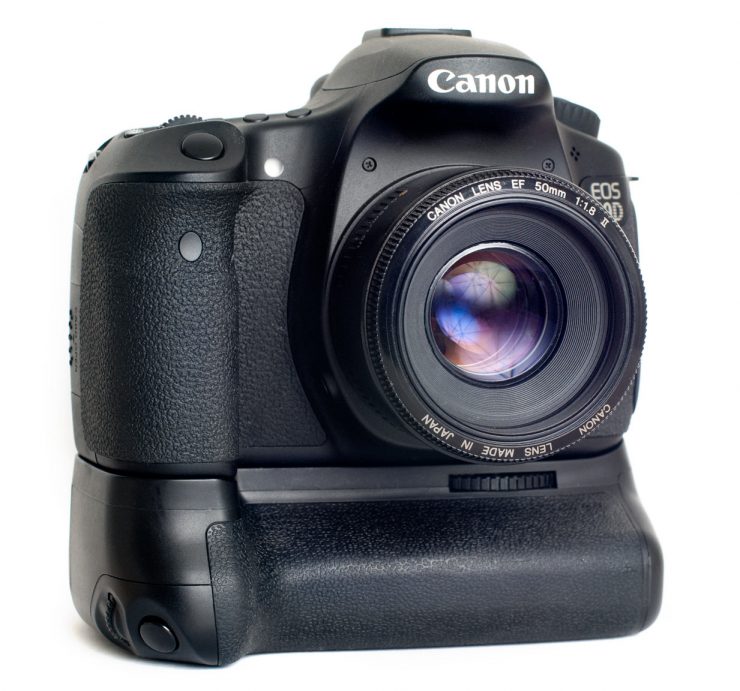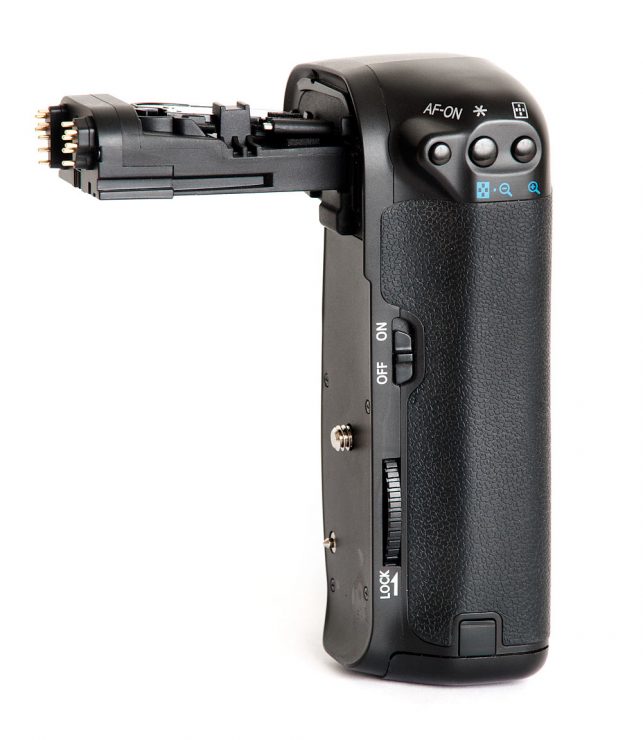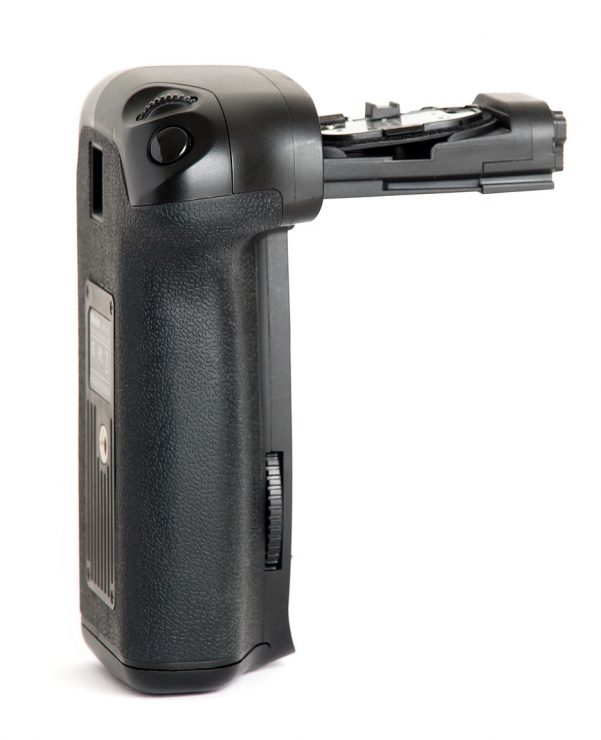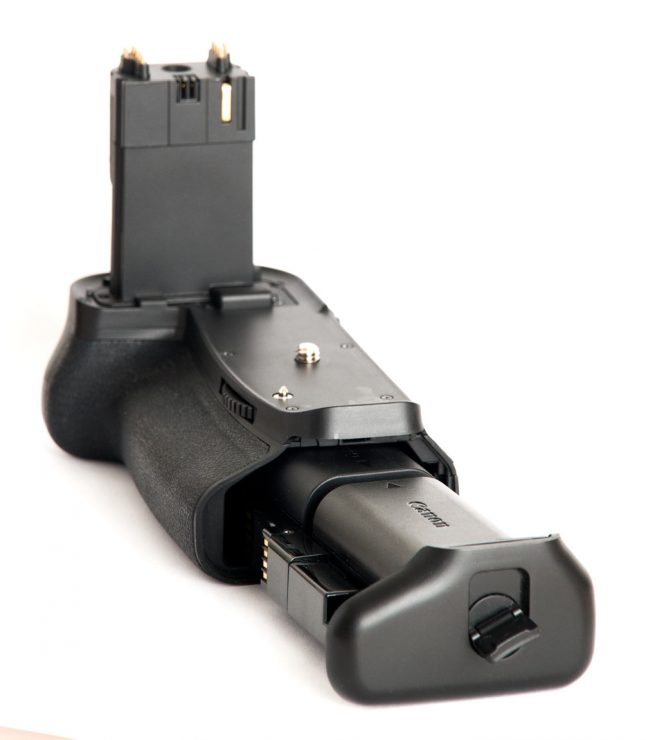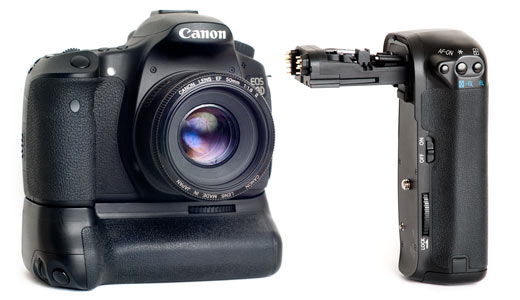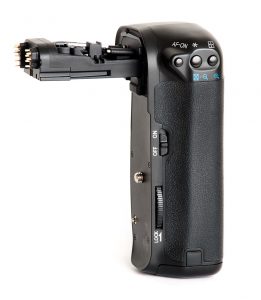
The balance and comfort of nearly any SLR will benefit from a battery grip, particularly if the photographer has large hands or uses heavy lenses. And needless to say, the increase in battery life can be very helpful. But as photographers, we also have countless other things to spend money on, from lenses and flash equipment to printers and specialty papers, making it hard to justify buying accessories that aren’t necessary. This is doubly true for equipment that is primarily back-up for our every-day gear. It helps, though, when we can get a battery grip for less than 23% of the cost of the OEM model… if it works. It was with these issues in mind that I began my review of the MeiKe / Neewer BG-E9 battery grip for the 60D.
To set things straight from the beginning: this battery grip is made by MeiKe. “Neewer” does not appear anywhere on the packaging; they are the distributor. However, the brand listed on Amazon and Ebay is “Neewer”, so I’ve included both to aid those who are searching for information about the grip.
In the Hand
I was pleased to discover that the build quality of the MeiKe/Neewer BG-E9 was actually quite good. Empty, the body feels a little light, but solid. With the addition of one of the battery cartridges, any hint of flimsiness disappears.The rubberized grip material on the unit matches the pattern of the 60D very closely, and is actually slightly softer and easier to grip (though this generally means that the material will wear out more quickly). My only complaint here is that the bottom of the grip is a little too wide and flat to feel completely comfortable.
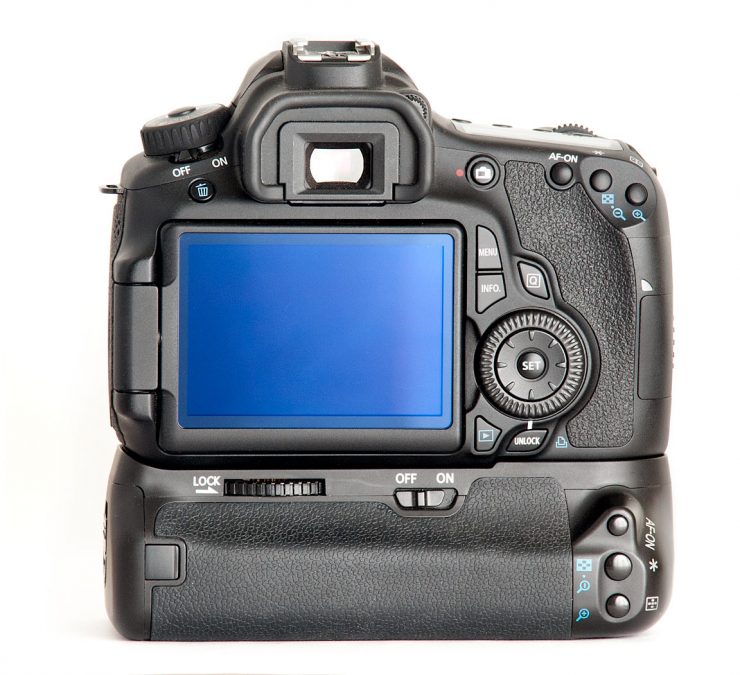
As is typical, you attach the grip to the 60D by turning a large dial, which in turn twists a mounting-bolt into the camera’s tripod-mount socket. This dial, labeled “Lock –>” on the back of the unit, functions flawlessly but is made of plastic rather than metal, and is probably the only component of the grip that does not feel quite up to par. In the process, the contact-arm of the grip slides into the battery compartment, but in order to do so, you must remove the battery compartment door by gently pulling it out of its hinge-slots. The door can then be snapped into a recess in the arm, where it can be stored until it’s needed again.
In Operation
Perhaps most importantly, the controls on the MeiKe / Neewer grip have a good, high-quality feel. The shutter button and command dial feel just like those on the camera, and the AF option buttons also feel well made. The exception is the “OFF-ON” slide-switch, which feels too light and does not lock into place very smoothly at either end. That said, I have not yet had any problems with it, functionally, after about three months of intermittent testing.
Like many battery grips, the MeiKe / Neewer BG-E9 comes with two battery-pack cartridges that can be used to power the camera, one that hold two standard Canon LP-E6 battery packs, and one that holds 6 AA batteries. Both work, though it’s hard to tell how accurate the battery-level indicator is on the camera.Where the grip really shines, though, is when using the AA cartridge with 6 NiMH batteries. Canon’s LP-E6 is nice and light, but only packs about 1800 mAH. Many AA NiMH batteries hold significantly more power, but will self-discharge quickly while not in use. As a compromise, I loaded the pack with 6 Rayovac Platinum Pre-Charged (Low Self-Discharge) batteries, which not only hold their charge for years, they weigh in at 2100 mAh, which will power your camera as long as SEVEN LP-E6s, at least in theory ( Sanyo Enloops are probably even better LSD batteries, and rated at 2000 mAh). This is particularly important if you’re doing long duration time-lapse work, where the camera may be programmed to shoot for several hours at set intervals, and a dead battery may ruin hours of work.
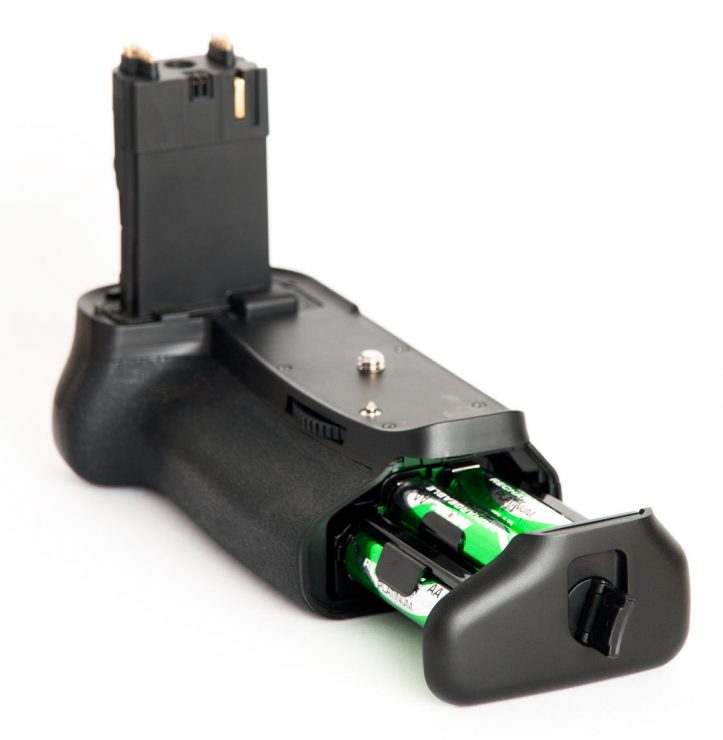
The Verdict
Unlike some other cheap grips that I’ve used, I would not hesitate to recommend the MeiKe BG-E9. Despite the low price, the quality certainly appears to be sufficiently high for years of rigorous use, though I will update this review if reality proves otherwise. So, how to do they produce a high quality product at such a low price? I got a hint from the motto on the back of the warranty card:
